News
-
 Earth
EarthPlastic drinking water pipes exposed to high heat can leak hazardous chemicals
Lab tests exposing commonly used water pipes to wildfire-like heat show damaged pipes can leach the carcinogen benzene and other chemicals.
By Megan Sever -
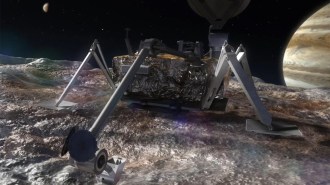 Space
SpaceHow future spacecraft might handle tricky landings on Venus or Europa
Scientists are getting inventive with ways to touch down on these worlds, where landers will face obstacles not seen elsewhere in the solar system.
-
 Health & Medicine
Health & MedicineThe new U.K. coronavirus variant is concerning. But don’t freak out
A new version of the coronavirus may be better at spreading from person to person, but there’s still a lot scientists don’t know.
-
 Chemistry
ChemistryA new iron-based catalyst converts carbon dioxide into jet fuel
Jet fuel made from carbon dioxide could one day reduce pollution from air travel.
-
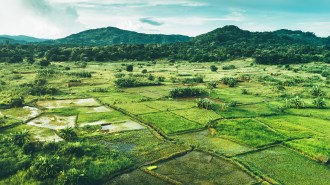 Animals
AnimalsClearing land to feed a growing human population will threaten thousands of species
Changing where, how and what food is grown could largely avoid biodiversity losses, scientists say.
-
 Health & Medicine
Health & MedicineHow does the newly authorized Moderna COVID-19 vaccine compare to Pfizer’s?
The FDA has granted emergency use authorization to Moderna’s COVID-19 vaccine, bringing the number of vaccines available in the United States to two.
-
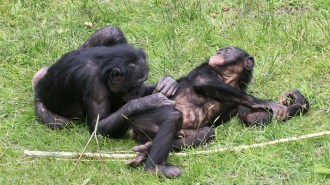 Animals
AnimalsBonobos, much like humans, show commitment to completing a joint task
Experiments with bonobos suggest that humans aren’t the only ones who can feel a sense of mutual responsibility toward other members of their species.
By Bruce Bower -
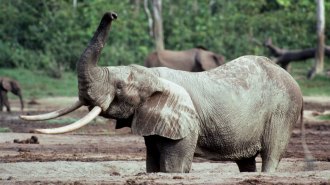 Archaeology
ArchaeologyIvory from a 16th century shipwreck reveals new details about African elephants
Ivory from the sunken Portuguese trading ship Bom Jesus contains clues about elephant herds that once roamed Africa, and the people who hunted them.
-
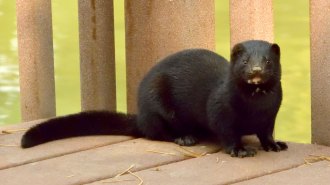 Animals
AnimalsA mink in Utah is the first known case of the coronavirus in a wild animal
A U.S. mink is so far the only known free-ranging animal to have contracted the coronavirus and likely got infected from a nearby mink farm.
-
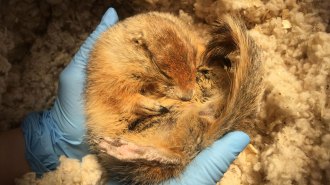 Animals
AnimalsThese Arctic squirrels recycle bits of their own bodies to survive winter
Arctic squirrels not only slow their metabolism while hibernating, but also harvest crucial substances from their muscles.
-
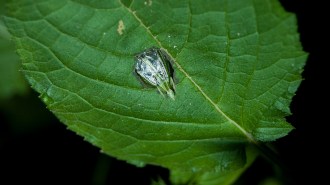 Animals
AnimalsSmall, quiet crickets turn leaves into megaphones to blare their mating call
A carefully crafted leaf can double the volume of a male tree cricket’s song, helping it compete with larger, louder males for females.
-
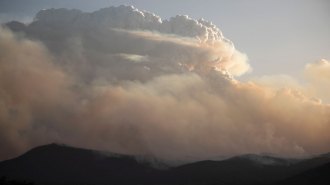 Earth
EarthTowering fire-fueled thunderclouds can spew as many aerosols as volcanic eruptions
A massive plume of smoke lofted into the stratosphere during Australia’s fires may represent a new class of “volcanic-scale” pyrocumulonimbus clouds.